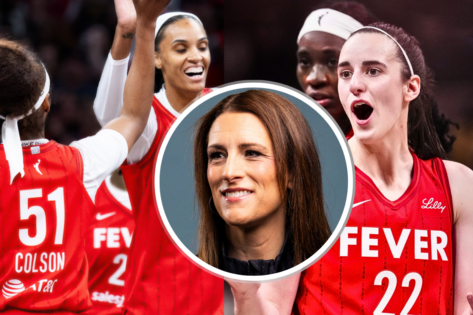

Following a narrow defeat to the Los Angeles Sparks, the Indiana Fever's head coach delivered a stark reality check to the team, particularly concerning their performance in the absence of star rookie Caitlin Clark. Clark has been sidelined with a lingering groin injury, missing her fifth straight game. The Fever's recent loss has sparked questions about their ability to compete consistently without Clark, despite some arguments to the contrary.
In the game against the Sparks, veteran guard Sydney Colson demonstrated her passing skills, notably with a full-court assist to Natasha Howard. Colson's contributions have been valuable off the bench, especially with Clark unavailable. Despite individual efforts, the team struggled to secure a win, highlighting the need for collective improvement and a deeper understanding of their roles.
Coach Stephanie White has been experimenting with different backcourt combinations to fill the void left by Clark. While players like Colson have stepped up, the team's overall performance has been inconsistent. The reality check from the coach likely addressed the need for greater consistency, improved execution, and a stronger collective effort, regardless of which players are on the court.
The Fever's struggles without Clark have fueled debate among fans and analysts. Some argue that the team is too reliant on the rookie, while others believe that the supporting cast needs to elevate their game to better complement Clark's abilities. The coach's message underscores the latter point, emphasizing the importance of every player contributing effectively to the team's success.
Despite Clark's absence, the Fever recently secured a win against the Minnesota Lynx during the Commissioner's Cup Finals. This victory, achieved without Clark, showcased the team's potential and resilience. However, the loss to the Sparks suggests that maintaining that level of performance consistently remains a challenge.
The reality check from the Fever's coach serves as a reminder that relying solely on one player is not a sustainable path to success in the WNBA. The team needs to develop a stronger collective identity, where each player understands their role and executes it effectively. As Caitlin Clark continues to recover, her teammates must use this time to improve their own games and build a more cohesive unit. This approach will not only benefit the team in the short term but also position them for greater success when Clark returns to the lineup.